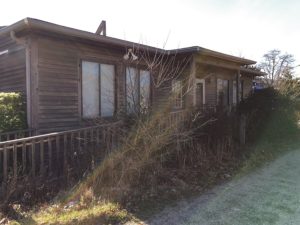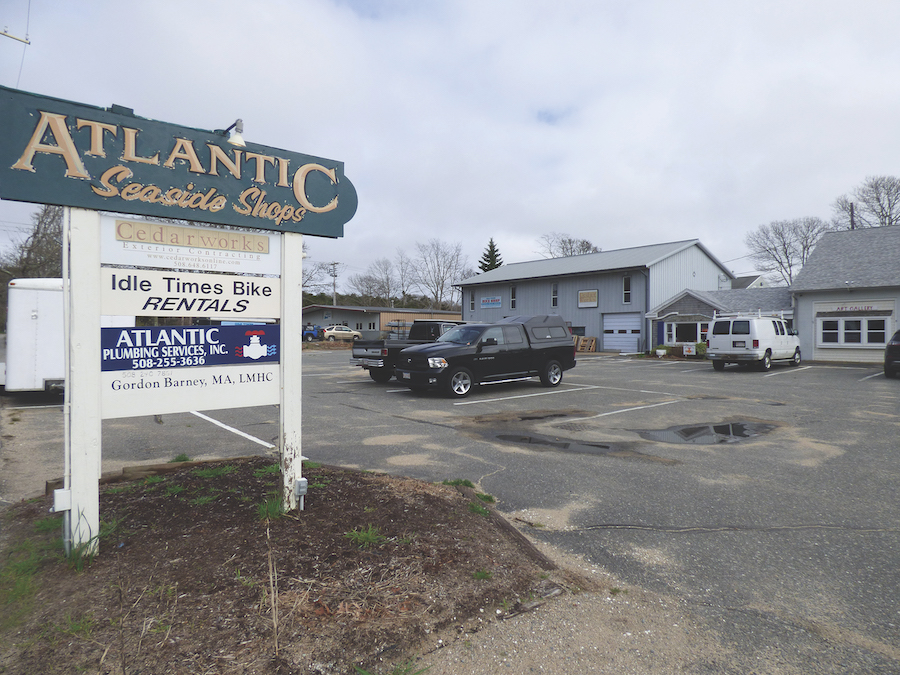TRURO — The owners of cannabis dispensaries in Eastham and Wellfleet plan to build a 9,600-square-foot building to grow and manufacture marijuana products off Route 6 in North Truro, an update to an earlier proposal that would significantly expand their production space.
The proposal is a joint venture by Zachary Ment, owner of the Piping Plover in Wellfleet, and Harlen Howard and Jonah Turner, co-owners of Salty Farmers in North Eastham. Ment, Howard, and Turner had asked earlier this year to use a 960-square-foot building at 1 Noons Heights Road to grow marijuana for their businesses.
Ment and Howard presented the expanded proposal to the Truro Select Board on July 13.
The new structure would likely have a canopy — the area used for growing plants — of about 1,000 square feet, though plans are not yet final, Ment told the Independent. That’s about 10 times as much cultivation space as was in the original proposal. Ment said about half of the building will be used for cultivation.
In spite of the scale of the expansion, Ment said that “the Hatchery,” as the facility is tentatively named, will still be considered a “tier 1” cultivation facility, that is, the smallest possible class, in the eyes of the state Cannabis Control Commission (CCC). But specifics of the building size have “a huge margin of error” he added, because the plan is in its early stages.
The property at 1 Noons Heights Road is currently owned by Michael F. Winkler of Truro, according to the assessor’s database, and includes 4.43 acres of land and three existing buildings: a 960-square-foot office building, a 1,464-square-foot wood-frame storage garage, and a 6,600-square-foot metal-frame storage garage. The property is valued at $1,010,800.
Ment told the Independent that the dispensary owners had reached an agreement with Winkler to build the new structure on the property, which Winkler confirmed.
Winkler currently operates a crane service out of the Noons Heights Road property, and he said he will continue to do so once the Hatchery is up and running.
“Not much has happened yet,” said Winkler. “All this stuff is preliminary.”
The dispensary owners have been negotiating with the town since March over a host community agreement (HCA) — the state-mandated arrangement between a marijuana business and the town government where it is to be located.
The increase in the size of the building, said Ment, came about during those negotiations.
It’s an outcome that “seemed to both parties like a viable option,” he said, but he would not explain why the town sees a larger facility as advantageous, because, he said, those negotiations are still ongoing.
Production at the facility will be limited to products to stock the two stores, Piping Plover and Salty Farmers, Ment said, to give them a competitive advantage. While he is unsure exactly what they will make, he anticipates the products will include edibles.
“The idea is we want things from beginning to end,” Howard said at the meeting.
If it is approved, the business will have the only licenses available in Truro for marijuana cultivation and for manufacturing — the two licenses are separate, as required by state rules. That limit on licenses available in Truro was approved by voters at a special town meeting in 2018.
The High Dune Craft Cooperative, a group of farmers who were recently approved for a provisional license to grow marijuana at five farms, is the only other cannabis business in Truro. They have a different type of license, intended for small farmers, called a craft marijuana cultivator cooperative license, and are currently in the process of preparing a site plan review application for the Truro Planning Board, said Michael Fee, a Boston-based lawyer who is representing the cooperative during the application process.
The new scope of the Hatchery proposal means the timeline for the project is longer than at first anticipated. Most of the additional time will come from building an entirely new structure, which was not in the original proposal. “It’s not easy to get anything built,” Ment said.
Ment’s and Howard’s presentation to the select board featured a rendering of what the building could look like: a steel-frame structure with solar panels on the roof. Ment said the details are likely to change after incorporating more input from community members and town officials.
But the additional challenges of building a new facility should pay dividends, at least according to the owners’ projections. The updated financial forecast they presented to the select board projected nearly $1.4 million in revenue in FY2023 and $2.5 million in FY2024, more than doubling the predicted revenue for the original proposal.
As with retail business, the host community agreement for this type of facility could call for a “community impact fee.” Select board vice chair Kristen Reed said that is in the cards, though the details of how it would work remain to be negotiated.
Depending on the fee percentage in the agreement (which is capped at 3 percent and can be imposed for no more than five years) and the accuracy of financial projections, the town could collect an estimated $41,000 in FY 2023 and $75,000 in FY 2024 from this facility.
Massachusetts law requires marijuana operations have sufficient security measures to prevent unauthorized entrance. The Hatchery will not be open to the public and will have a security plan approved by Truro police, Howard and Ment told the select board. They also said the facility will be equipped with “surveillance cameras, perimeter alarm, and electronic access controls,” and that only authorized personnel will be allowed on the premises, and the building will be locked at all times.
Before the presentation began, board chair Bob Weinstein commended the “thoroughness and clarity” of Ment’s and Howard’s presentation slides.
Reed and Town Manager Darrin Tangeman, who are part of the team negotiating the HCA on behalf of the town, praised the security systems they saw at site visits to both existing retail locations as part of negotiations.
“I couldn’t say enough positive things about the way both of their establishments are being run,” Reed said. Compared to dispensaries she said she’d seen both in and out of state, she said the two collaborating on this project were “impressive,” in terms of their facilities and professionalism.




